Hundreds of thousands of patents are issued by the U.S. Patent and Trademark Office for new inventions every year. Some of these creations, such as the lightbulb, personal computer, and automobile, changed the world.
Others have made everyday life a little easier, and potentially more fun—just look at your smartphone or the cat scratch toy that resembles a DJ's turntable. And some inventions are for things people never realized they needed, but now desperately want.
Who wouldn't want a high-tech laundry folding machine or a breathalyzer-powered app that helps you avoid overspending when you've had one too many?
But despite the countless numbers of interesting, useful, and even groundbreaking inventions on the market, many other bizarre creations in history barely made it beyond their initial prototypes. Perhaps they were ahead of their time, impractical products, or simply confusing to use.
However, while they failed to stand the test of time, they serve as a relic of their era. Strange creations from yesteryear can give people a sense of the culture of previous generations and the problems that their crafty inventors tried to solve.
Who knew that people had so much trouble scooping spaghetti from a bowl that someone dreamed up a twisting fork? It may speak to the confusion Americans may have had about foreign cuisines and their determination to enjoy these tasty new foods.
Rather than letting these designs get lost to time, Stacker compiled a list of 30 bizarre inventions from throughout history using archival photos from Getty. These black-and-white images are not just revelatory, they're a fascinating look at creations you might never have imagined. Plus, they're a downright fun trip down memory lane.
Click through to see some of the most obscure and creative inventions in history.
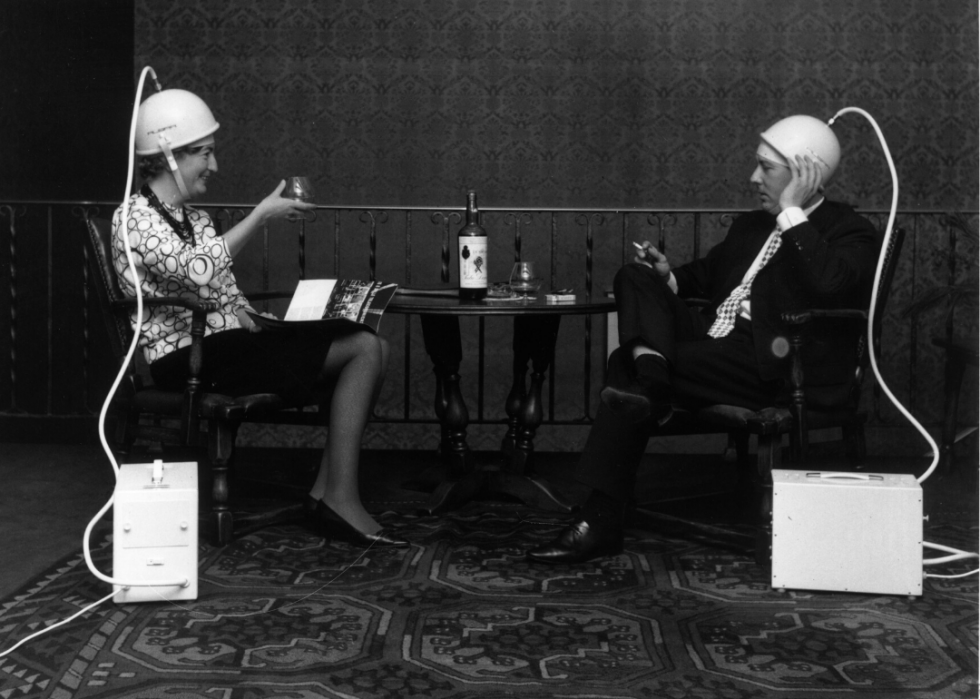
Massage helmet
In the 1960s, you didn't need to visit a spa to get a relaxing head massage. You could slip on this massage helmet for an air-powered scalp rubdown. This invention is still available today, albeit in more modern, portable forms.
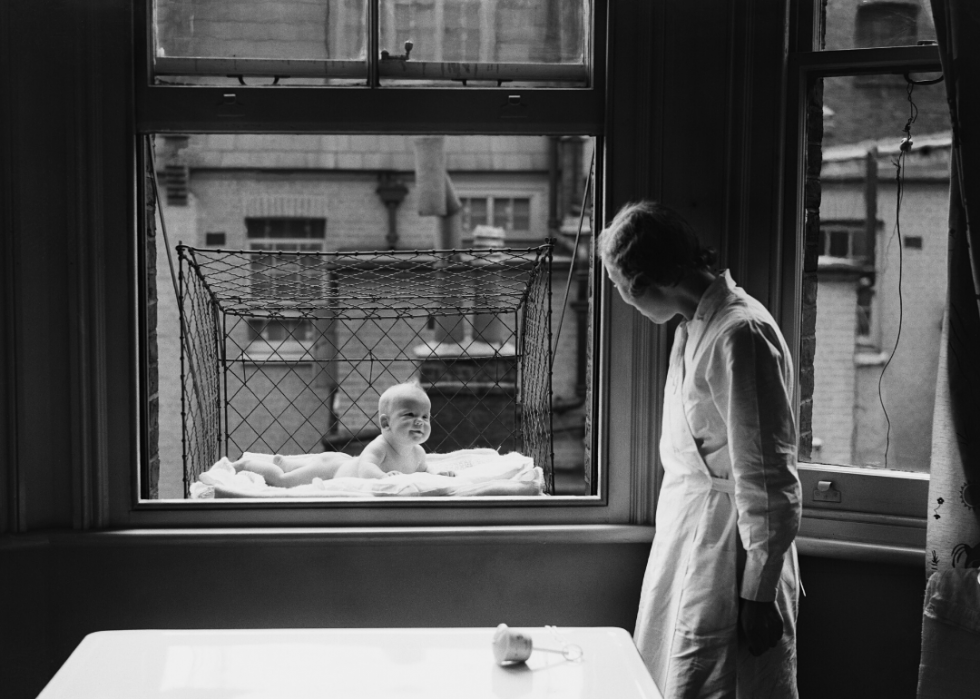
Urban window baby cage
Dubbed by Time as one of the "50 worst inventions," the urban window baby cage was used in the 1930s to give infants plenty of fresh air. Doctors believed that this would boost youngsters' immune systems and help them stay healthy.
However, the health benefits may have been nullified by the obvious risk of dangling a baby several stories above a city street.
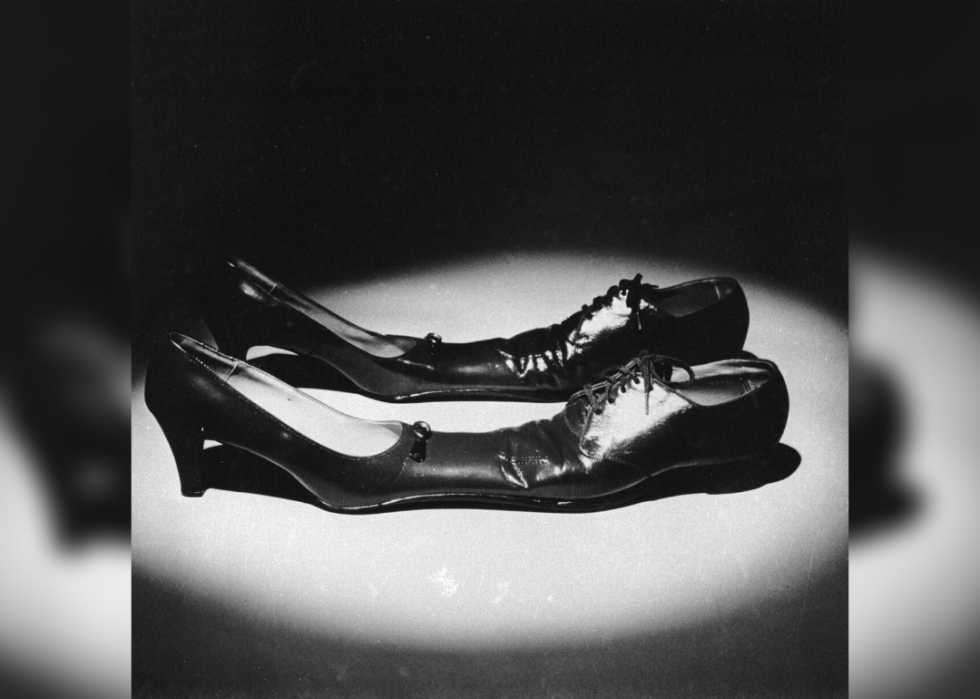
Siamese dancing shoes
Got two left feet? These Siamese dancing shoes, specially designed for ballroom dancing, might fix that problem. They were featured in the spoof "Better Living Catalogue" in 1981, potentially as a joking way to help couples stay in sync on the dance floor—whether they were mastering the foxtrot or (more likely) tripping to the ground.
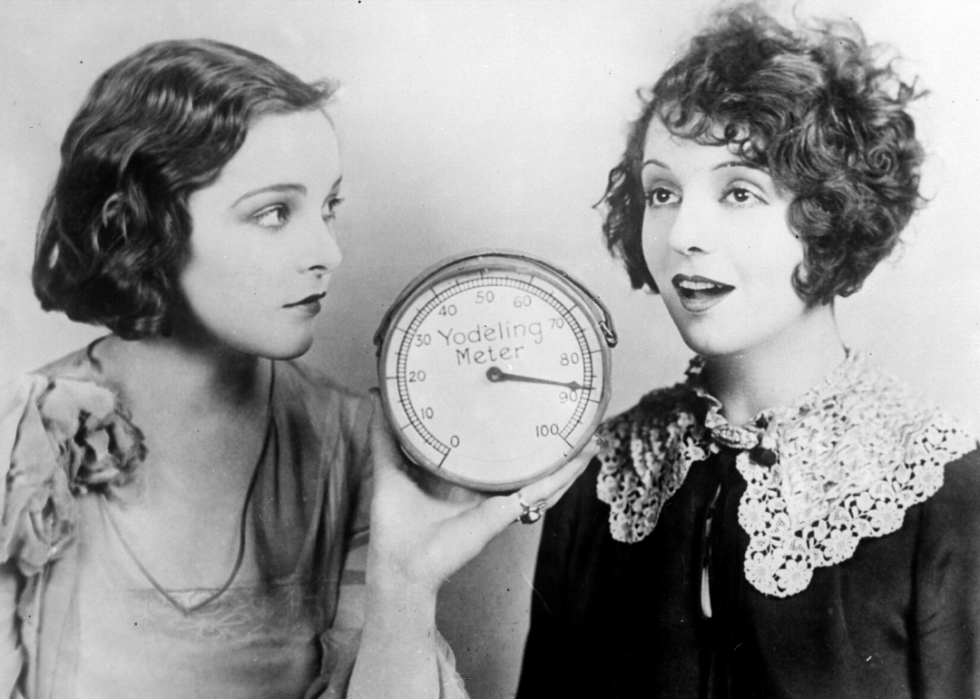
Yodel meter
Before the music world had Auto-Tune, there was the yodel meter. The device, photographed circa 1925, could measure the pitch of a singer's voice.
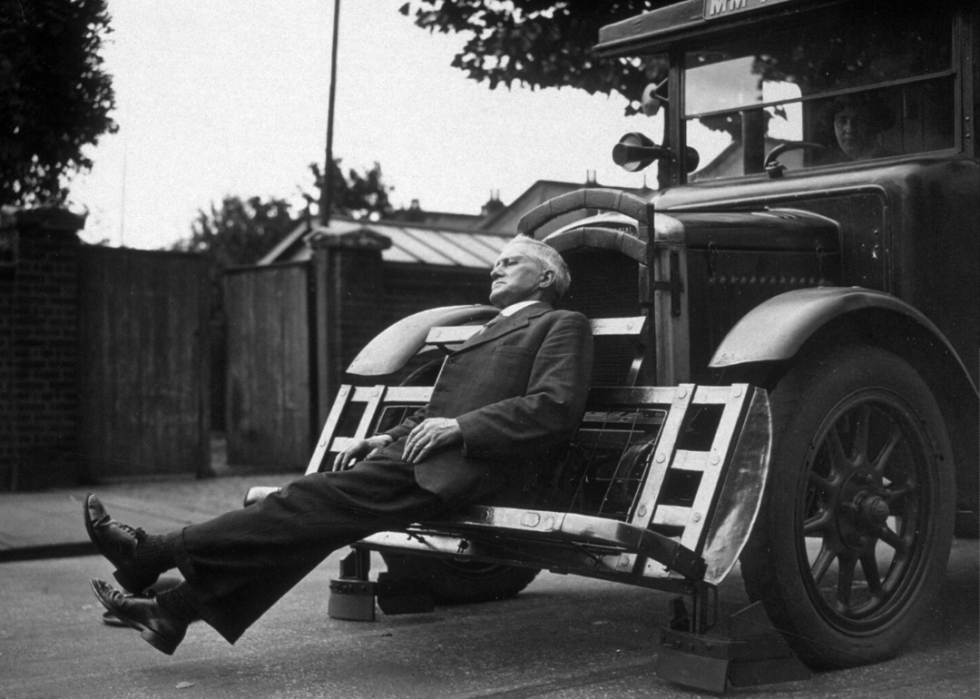
Rubber bumper
The first few decades of the 20th century were a dangerous time to be on the road. Some years, car crash deaths surpassed 20,000 people, and injuries were in the hundreds of thousands. Inventor A.J. Grafham tried to make things a little safer with this 1930s bumper, a sponge rubber seat that promised to protect pedestrians from injuries if they were hit by a speeding automobile.
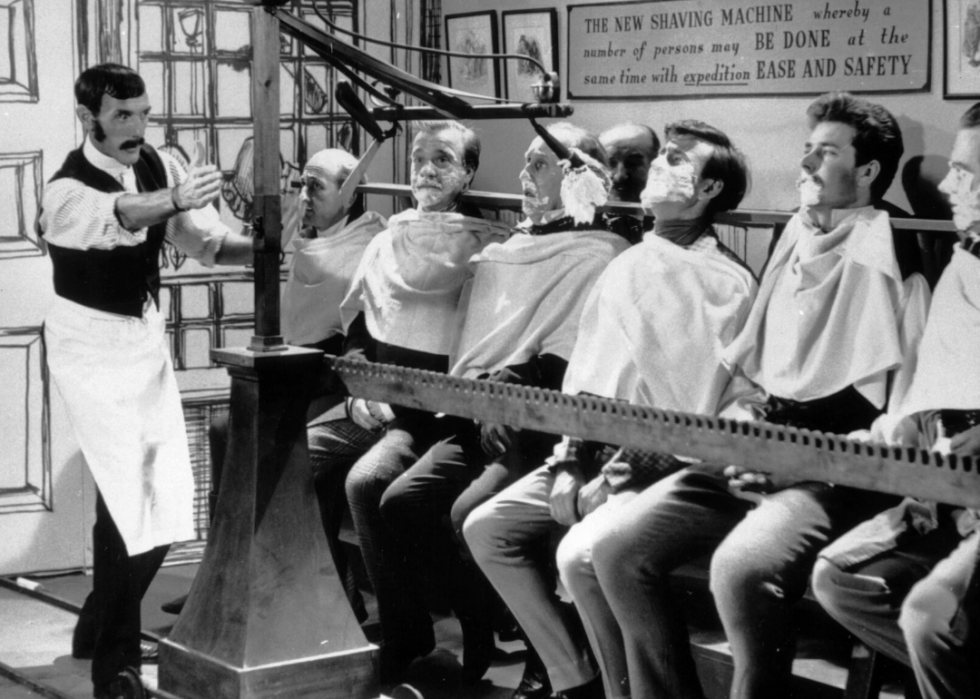
Mass shaving machine
No longer confined to the factory floor, the assembly line hit barbershops in the 19th century with this mass shaving machine. The unusual invention allowed barbers to shave a dozen men simultaneously. Anything for efficiency, right?
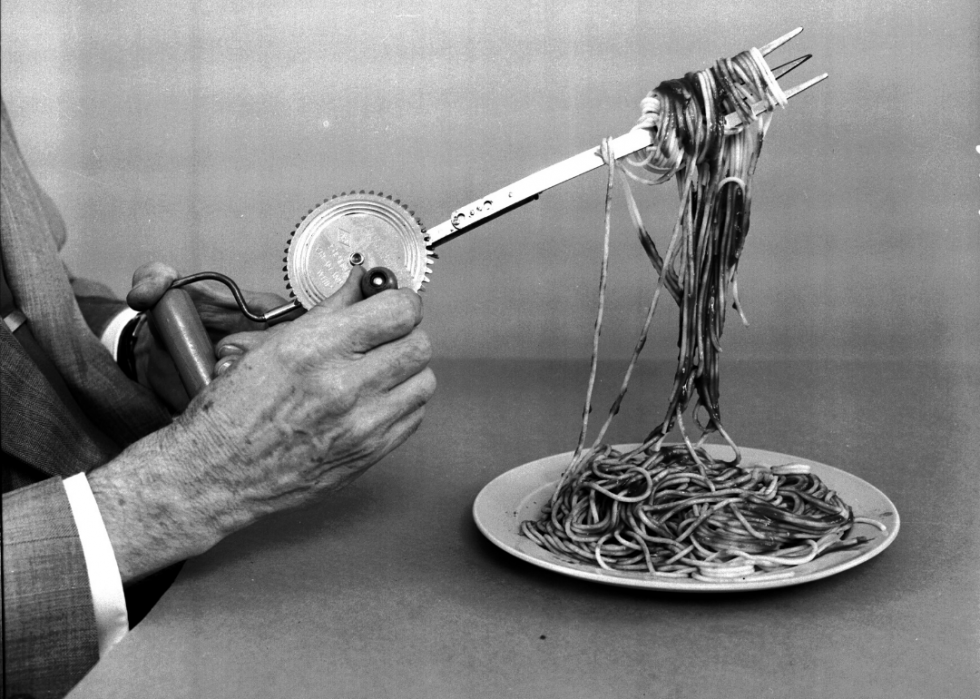
Spaghetti aid
Eating a bowl of pasta got much easier when this spaghetti aid was invented. It would wind spaghetti noodles around the fork in seconds. It's hard to imagine that this novelty invention had any staying power, but it returned to the market in recent years, complete with a battery-powered upgrade.
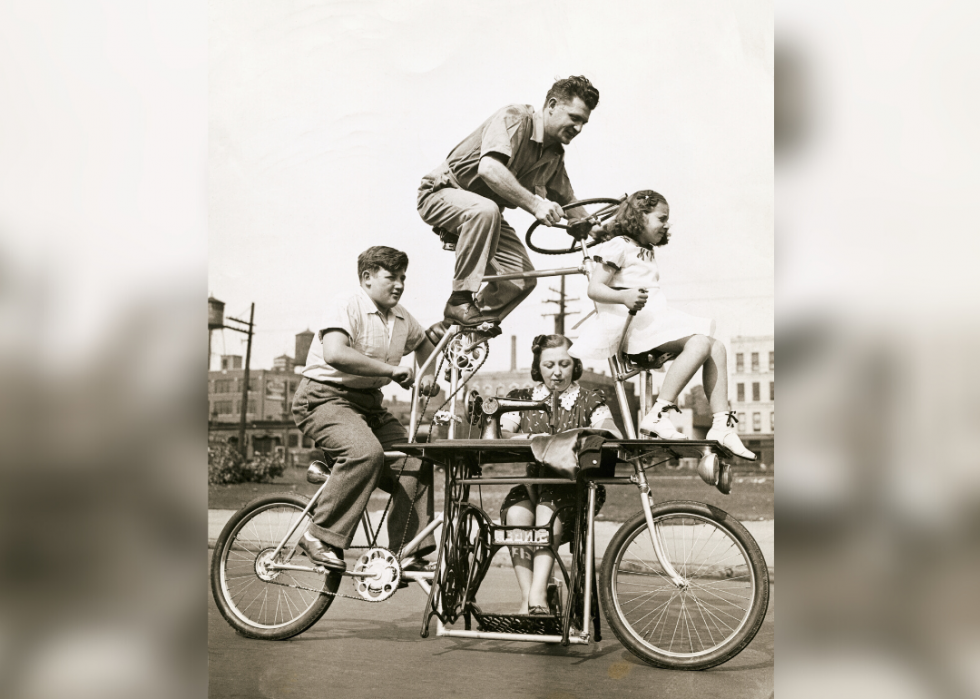
Family bicycle
The whole family could enjoy the pleasures of a bike ride with inventor Charles Steinlauf's historical machine, which included spots for two people to pedal, one person to ride in front, and even a dedicated seat for a seamstress to continue her sewing work on the go.
Four-person bicycles are still available today, but you might have to look far and wide for one that includes a sewing machine.
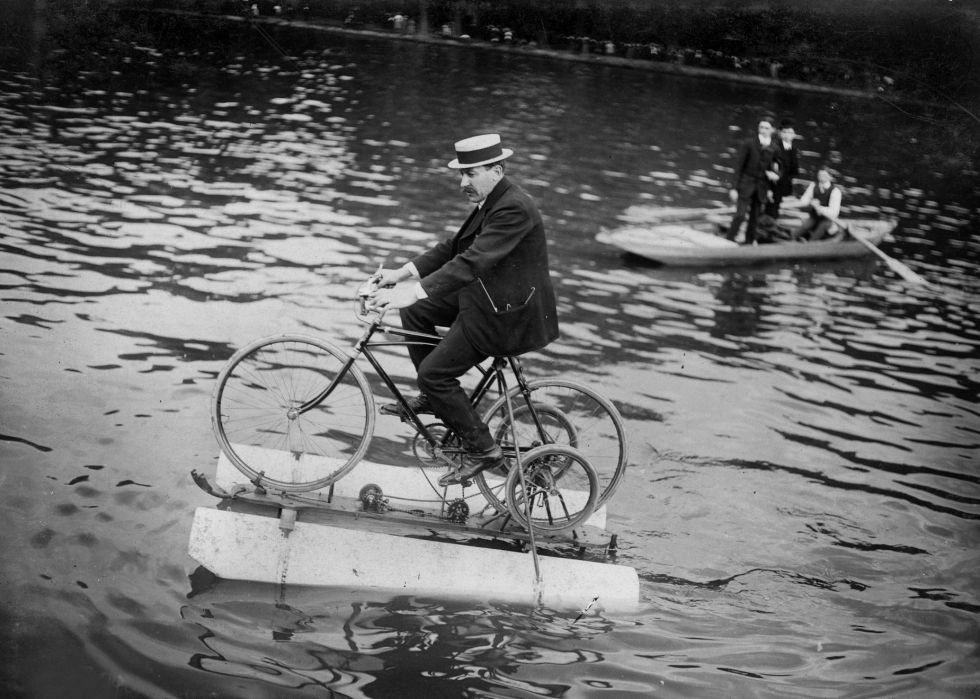
Amphibocycle
Pesky lakes and rivers didn't have to interrupt the carefree bliss of bicycling in the early 1900s. This amphibocycle allowed them to keep going over water. Today's water bikes promise high performance, excellent balancing capabilities, and maneuverability around tight turns.
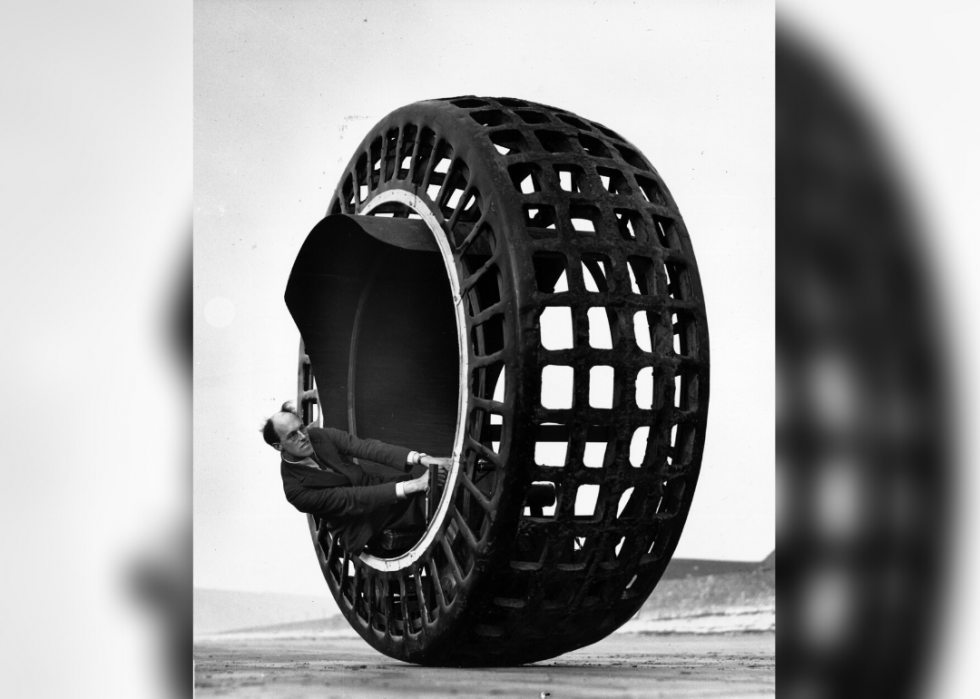
Dynasphere
Inspired by one of Leonardo da Vinci's fantastical ideas, British inventor John Purves created this monowheel vehicle in the early 1930s. Drivers could hit speeds of up to 30 miles per hour but may have gone head over heels if they tried to brake hard.
Nowadays, shoppers can shell out thousands of dollars for a pedal-powered monowheel that even glows in the dark.
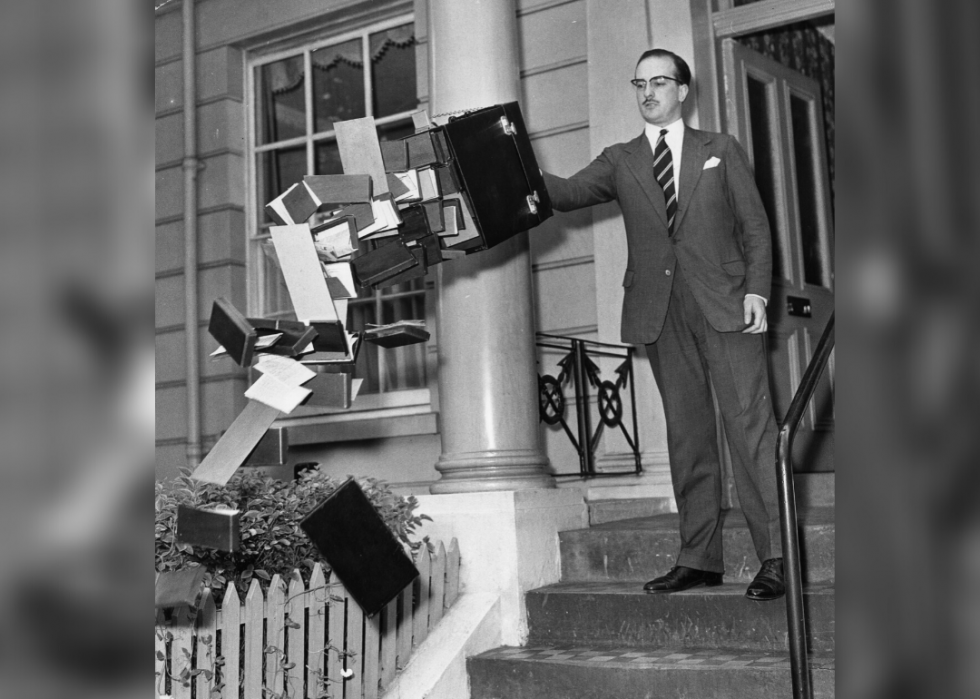
Anti-bandit briefcase
This anti-bandit bag would release its contents all over the ground if a thief tried to steal it. It was perhaps a less frightening theft deterrent than a similar bag of the time, which would release a smoking chemical vapour if someone tried to snatch it.
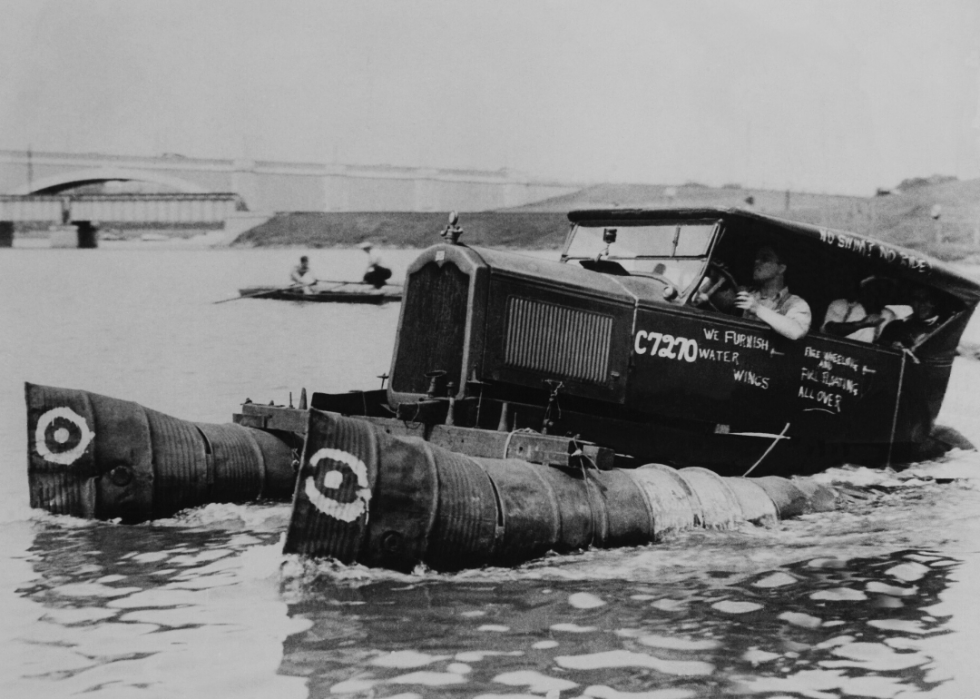
Water taxi
Travelers who needed to cross the rivers around Somerville, Massachusetts but didn't want to deal with the hassle of a ferry or rowboat, could have perhaps hailed this water taxi for on-demand service. The idea is still alive today: Ride-hailing app Uber launched a water taxi service in Mumbai in 2019.
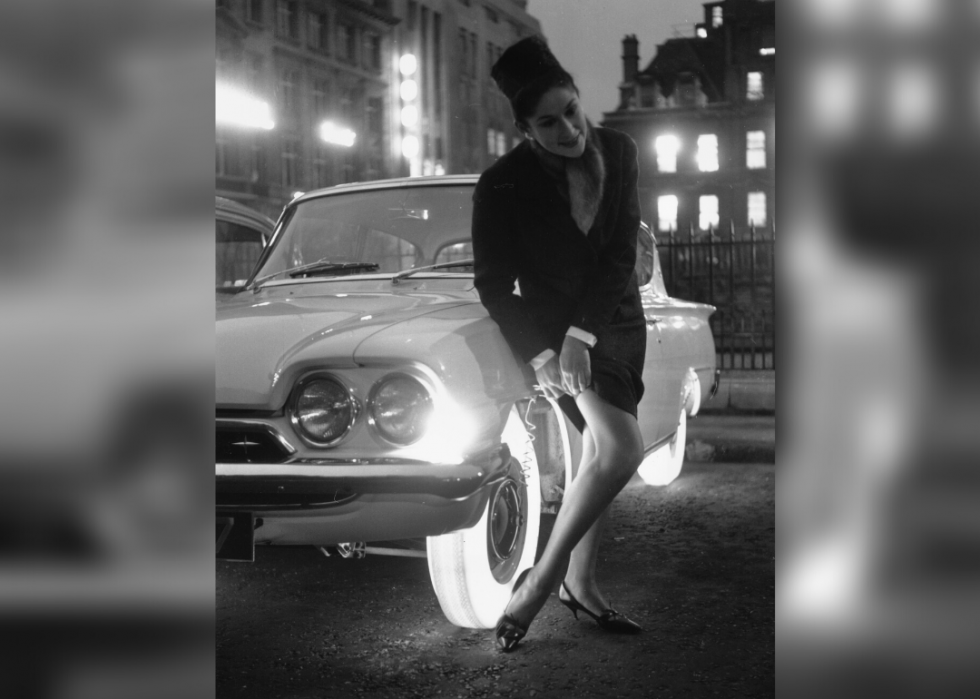
Illuminated tires
Goodyear Tire & Rubber Co. wanted to add flair to cars across America with these illuminated tires, outfitted with 18 internal light bulbs. Despite being well-received, the flashy tires were too costly and impractical to produce on a large scale.
However, a set was installed on the Golden Sahara II, a concept car from 1954. The car was restored to all its futuristic glory in 2019—complete with a new set of four glowing tires from Goodyear.
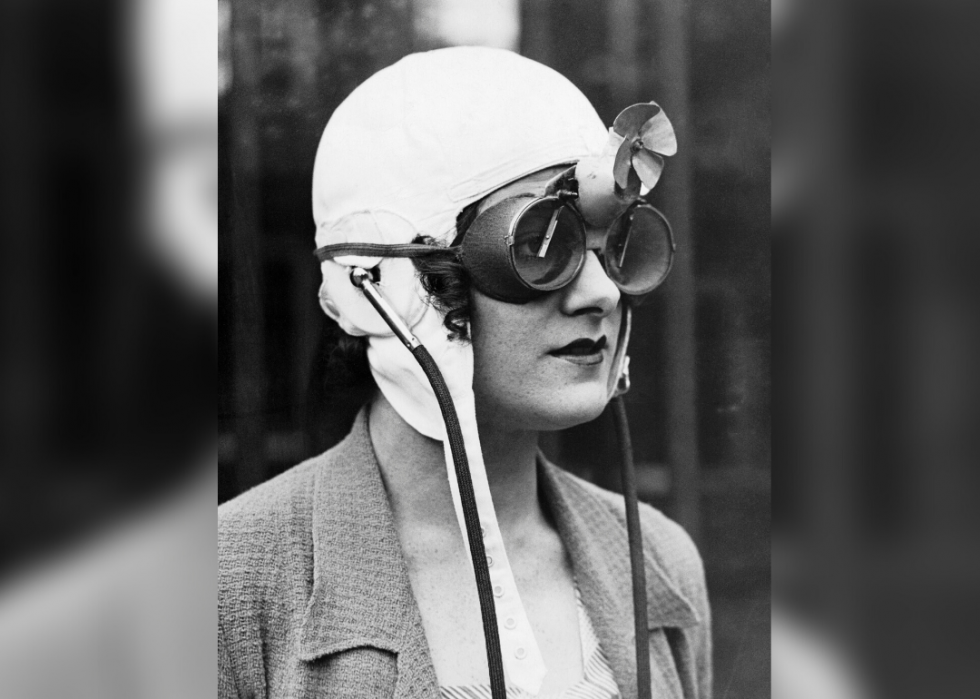
Rain goggles for race drivers
Wipers didn't just belong on racecar windshields in the 1930s—they also came on special rain goggles that drivers would wear in open cars. A chintzy plastic version of this invention is available on Amazon today.
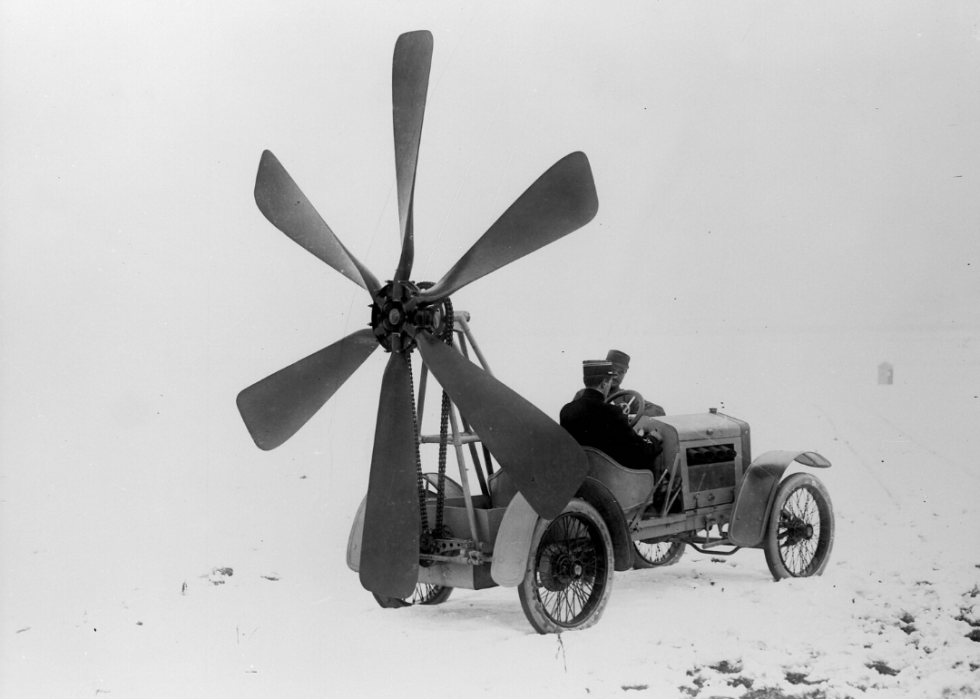
Air-drive system
This fan-powered car might have made more of a splash today than in the 1910s, considering the worries about climate change. This early invention may have inspired the compressed air-powered car that was featured in "Shark Tank" in 2015.
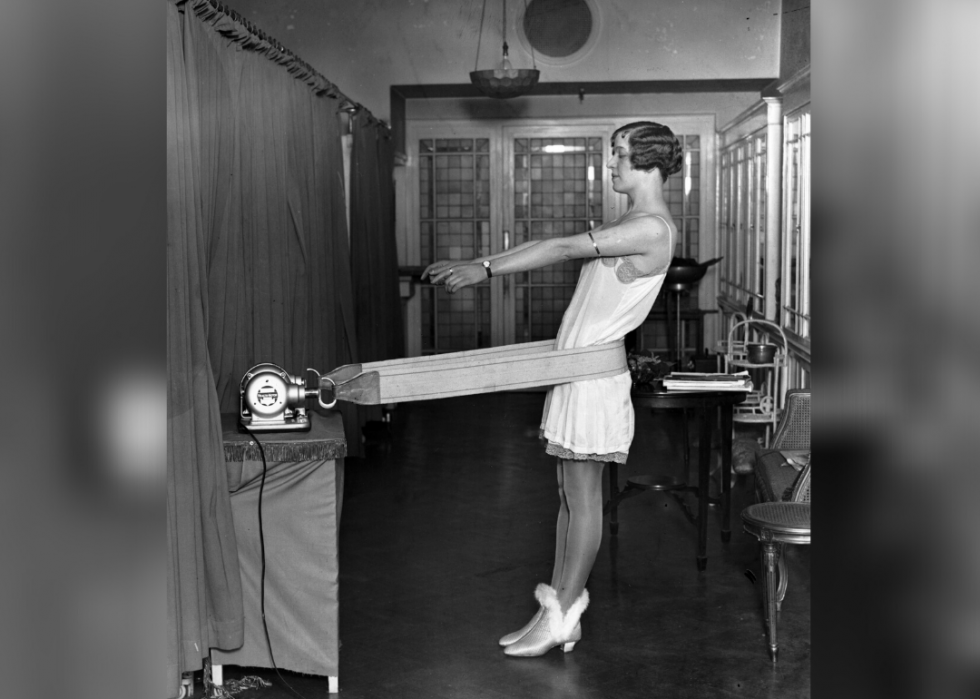
Hip trimmer
No need to hit the gym—people looking to trim a few inches off their waistline could simply jiggle the fat away with this vibrating exercise belt from the 1920s.
Marketers of similar devices, which used electrical stimulation to promote weight loss, in the early 2000s reportedly were forced to pay $7 million by the Federal Trade Commission for exaggerating fitness claims.
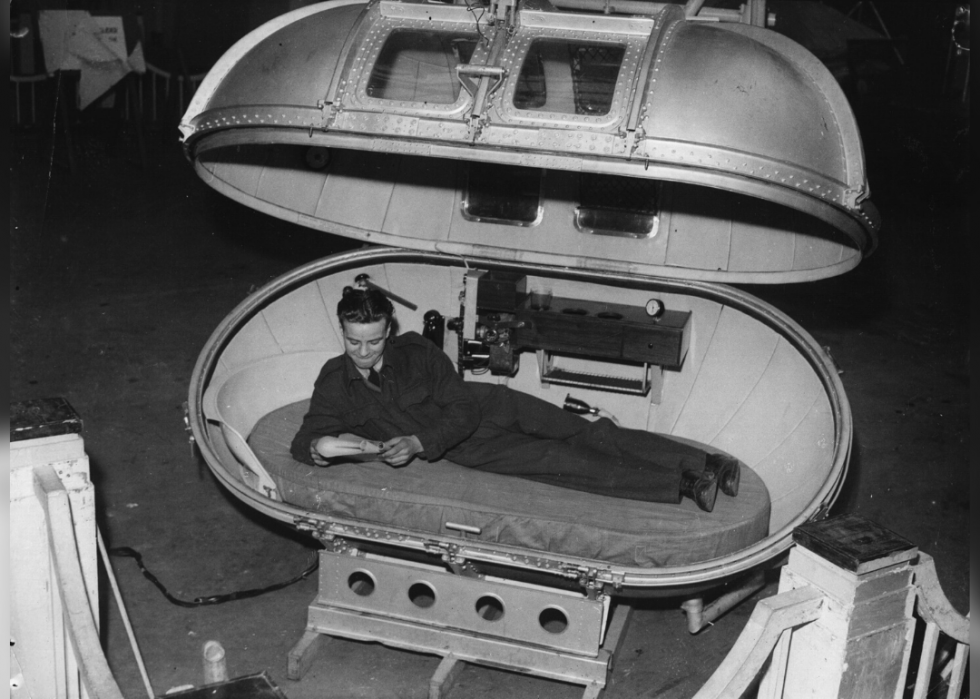
Churchill's pressure egg
Aircraft pressurization hadn't yet become mainstream during the time of Winston Churchill, so the Institute of Aviation Medicine built him his very own pressurized pod for safer flying at high altitudes. Sadly, it was rejected for its size and weight. Churchill was probably more comfortable in his C-54 Skymaster, anyway.
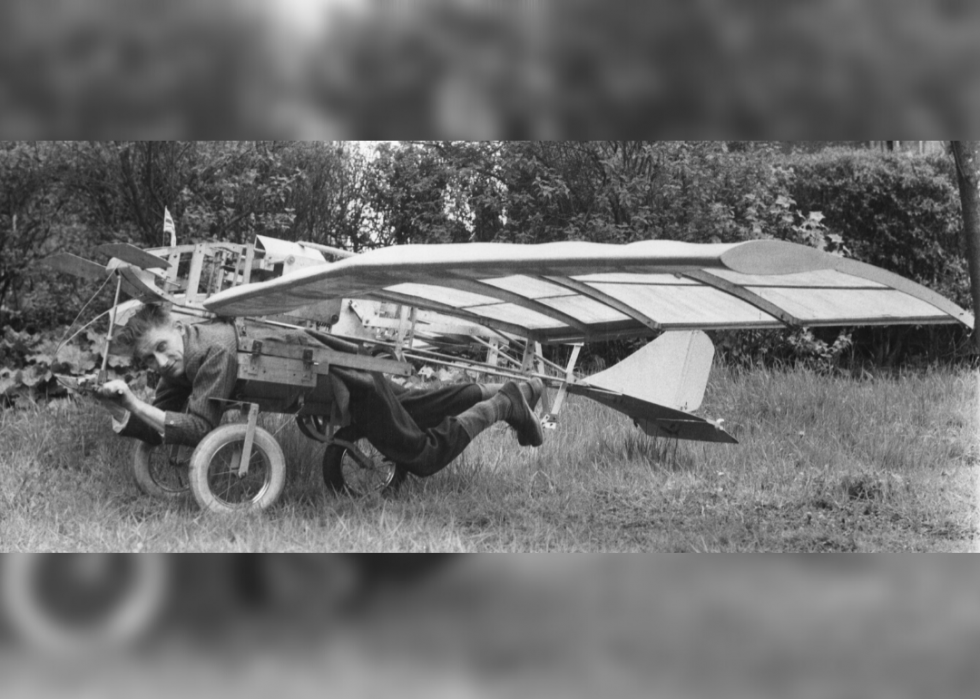
Ornithopter
While many people might imagine what it's like to fly like a bird, engineer Alan Stewart took things a step further with his ornithopter, a human flight machine designed to flap its wings like a bird, in 1963. Smaller ornithopters are now used at some airports to scare away pigeons and seagulls.
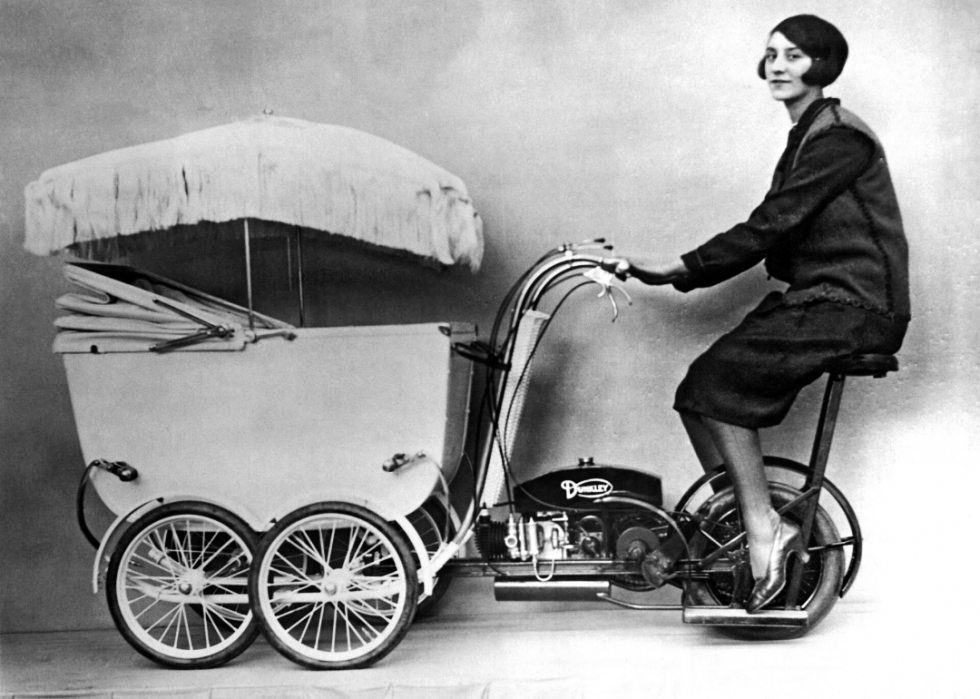
Pramobile
With this 1920s pramobile, parents and their baby carriages could hit the streets at 15 miles per hour. Modern-day versions of this design allow moms and dads to tow their youngsters in trailers that clip on behind the bike.
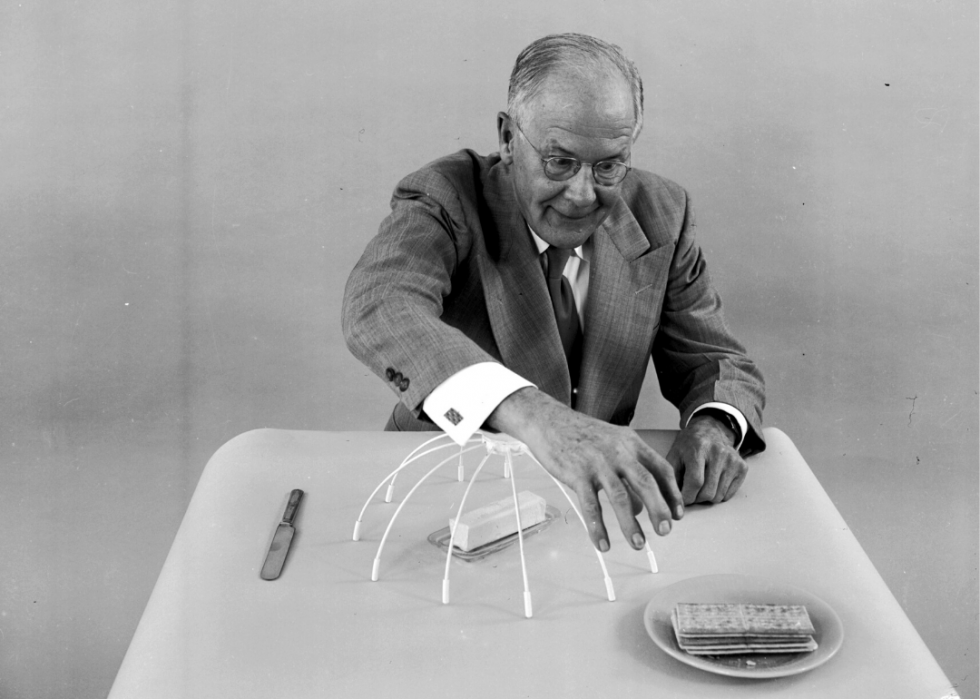
Butter protector
What could be more embarrassing in the 1950s than accidentally dragging your sleeve through a stick of butter as you reach across the table? American amateur inventor Russell E. Oakes solved that problem with this spider-like gadget.
Today's diners solve this issue with luxurious covered butter keepers or by politely asking someone else to pass the dish they need.
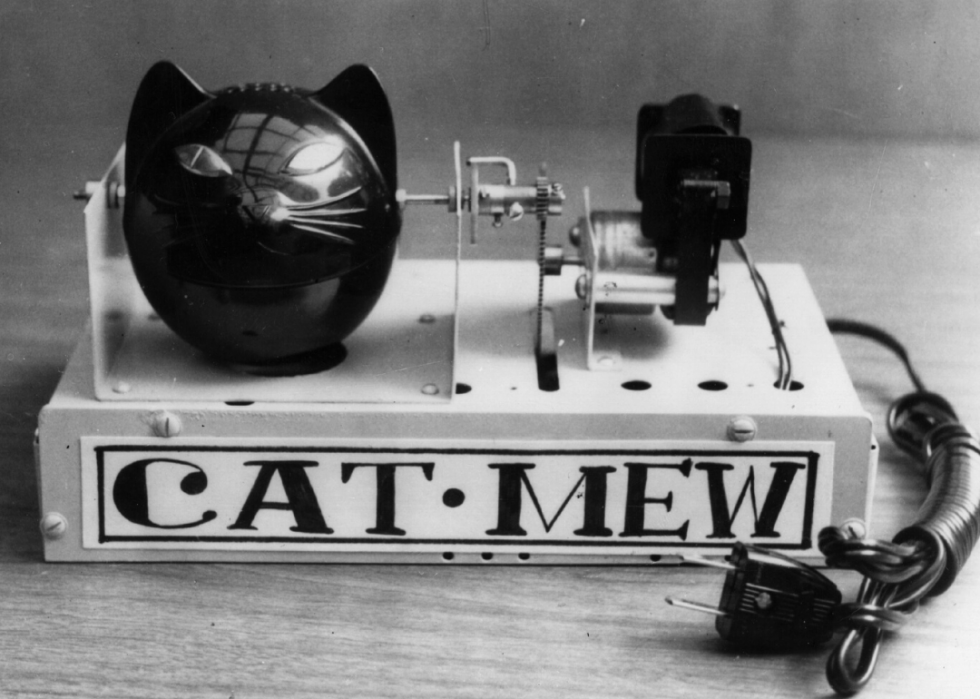
Cat-mew machine
Inventors are always looking to build a better mousetrap, and in 1963, this was the latest iteration. Homeowners with a mouse problem could use this mechanical cat from Japan to scare away rodents. Its eyes would light up, and the cat would "meow" 10 times every 60 seconds.
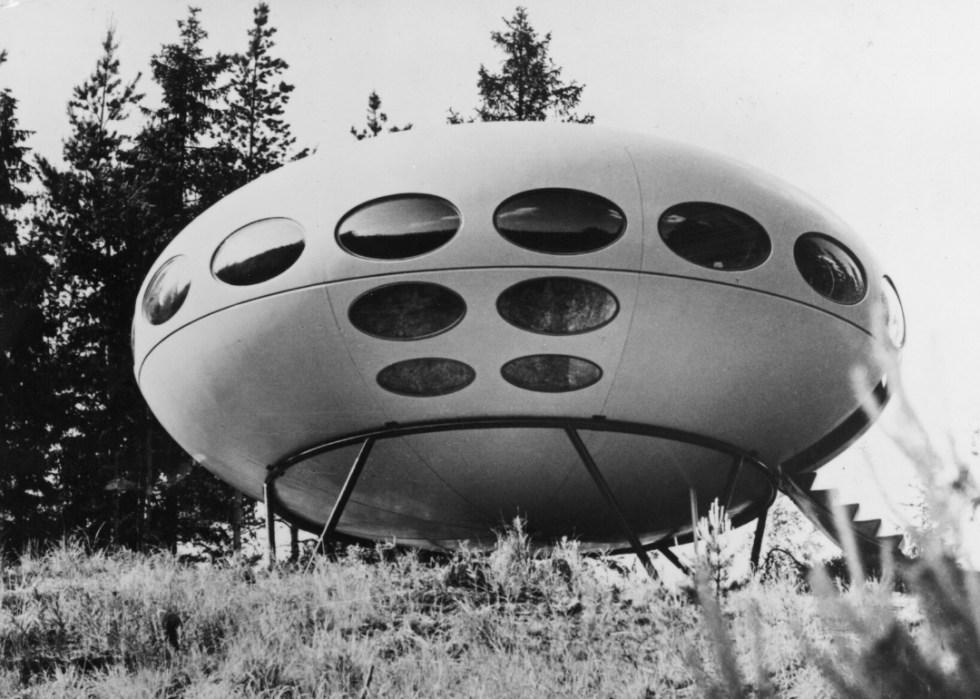
Modern house
It might look more like a spaceship than a residence, but this modern house (called "Futuro") was intended to be a portable, weather-resistant home for families who had an eye on the future. Less than 100 of these structures were built during the 1960s and 1970s, and about 60 remain today.
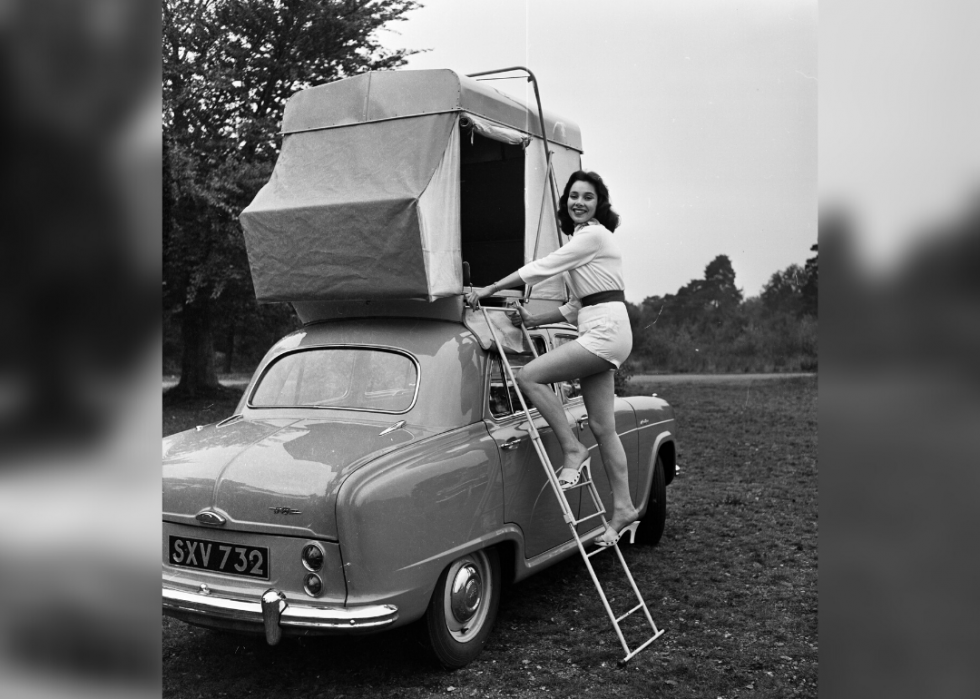
Roofsleeper
This invention turned the top of a person's vehicle into their own private sleeping quarters in the 1950s. Travellers can now sleep in vans that have been converted into mini-hotels by Airbnb users.
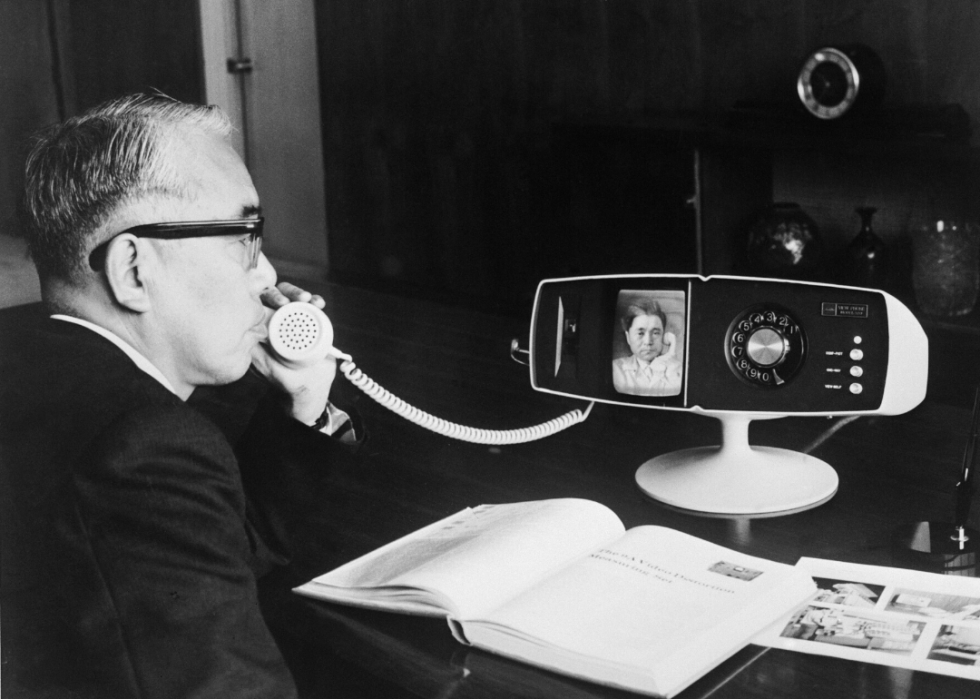
Toshiba View Phone
The Toshiba View Phone allowed callers to see each other on a small video screen. With Facetime now a part of everyday life, it's hard to imagine a time when video chatting was not only novel but groundbreaking.
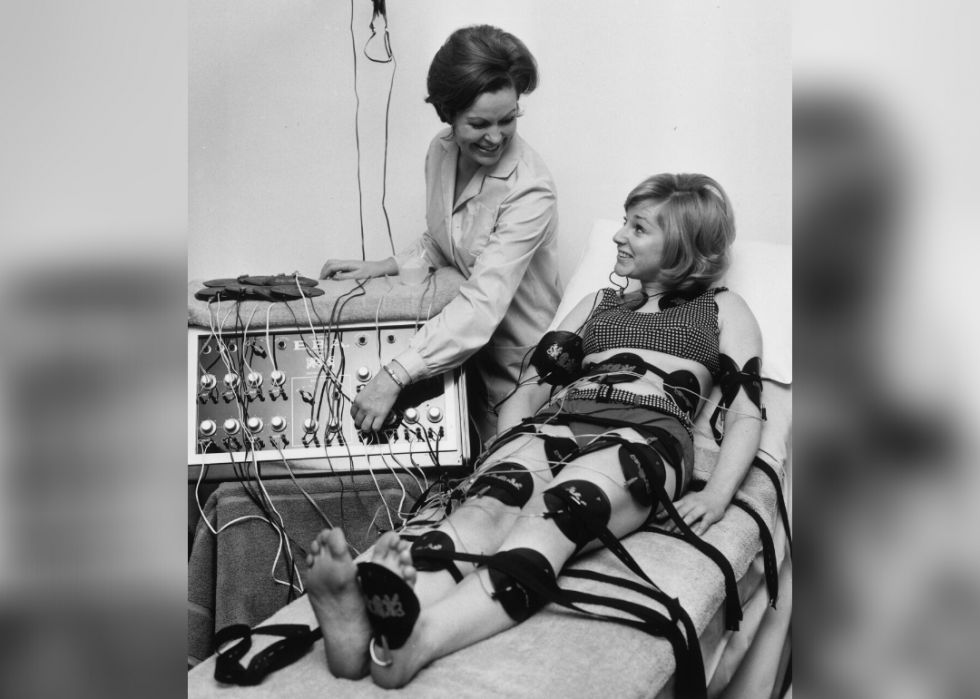
Electric Slimming
Rather than exercise, electricity was used to promote weight loss in the 1960s. Pads were placed all over a person's body to stimulate muscles with a mild electrical current.
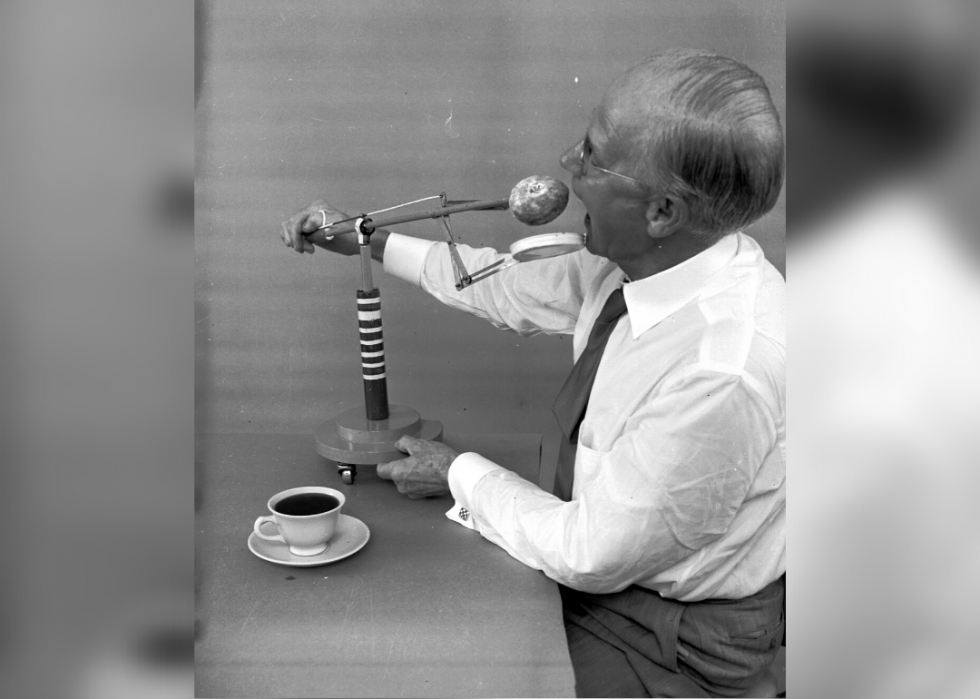
Doughnut Dunker
Dunking a doughnut into a cup of coffee without getting your fingers wet was no longer the stuff of fantasy—it was a reality when amateur inventor Russel E. Oakes created this device.
Whether the invention upheld the dunking standards of the National Dunking Association, a doughnut-focused organization from the 1930s, has yet to be determined.



